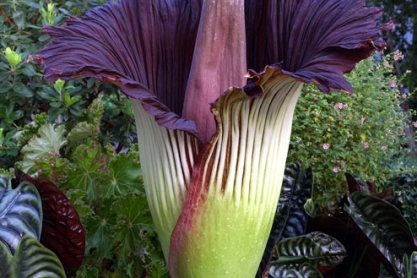The Eden Project started life as mere sketches on a couple of napkins drawn in a pub in 1996. The idea came to Sir Tim Smit who had previously worked to restore the Lost Gardens of Heligan in Cornwall. His idea to use an old china clay pit soon took off, and within two years Eden entered into the Guinness Book of Records as the project to use the most amount of scaffolding, owning to the large domes that were in construction.
There are two separate biomes emulated at Eden, constructed of bubble-like interlocking domes. A biome is an ecosystem that has its own set climate, assimilation of plant species and soils that occur there. The first dome showcases the Mediterranean climate while the second is a tropical one.
The tropical Rainforest Biome, twice the size of Big Ben, is the world's largest man-made rainforest and houses over 1,000 species of jungle plants. Many of Eden's plants are grown from seed, while others are donated from botanic gardens and research stations. It also houses the world's biggest and smelliest flower, the Indonesian Titan arum, which blooms for only two days and can take up to seven years before another bloom.
In contrast to the steamy jungle theme, the Mediterranean Biome is far drier. Aloe veras, olive trees, lemon trees and colourful flowers fill the temperate world, with plants representing California, South Africa, Central Chile and the Mediterranean. The regions all have similar ecosystems characterised by dry summers and rainy winters, and as a result are host to some of the best wine regions.
An education centre opened in 2005 to explore sustainability, both at Eden and in wider global implications. It tackles aspects of reducing energy consumption, using renewable power, reducing waste and water usage. The project further engages the public with educational programmes for schools and universities in order to educate about pressing global environmental matters.
The Eden Project now also hosts an ice rink every winter, the annual famed music festival 'Eden Sessions' and even opens as a wedding venue.




